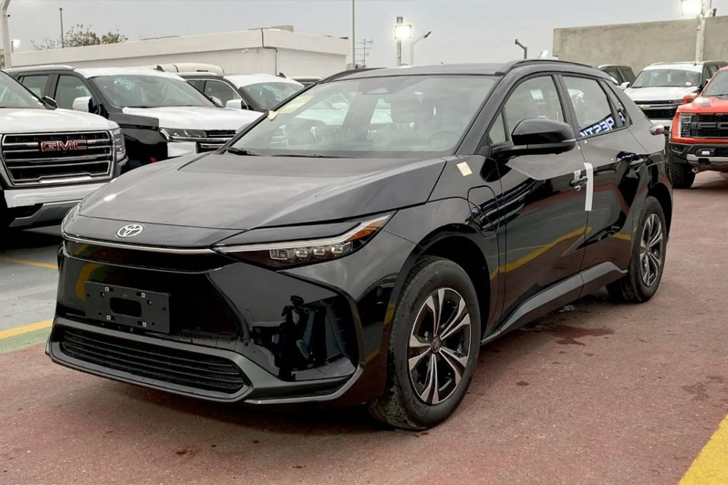Toyota’s Environmentally Friendly and Economical Electric Vehicles
The automotive sector is undergoing a monumental shift, with sustainability now a pivot around which manufacturers are reorienting their strategies. Toyota, a giant in the industry, has been at the forefront of this evolution. Known initially for its revolutionary hybrid vehicle, the Prius, Toyota is redefining its contributions with a new generation of environmentally friendly and economical electric vehicles (EVs). In this analysis, we’ll delve into Toyota’s electric initiative, examining its latest offerings, sustainability efforts, and the economic benefits of its EVs.

The Shift Towards Electrification
In recent years, Toyota has increasingly focused on the development of fully electric vehicles besides their popular hybrids. This shift is partially in response to tightening emission standards globally and the growing consumer awareness and demand for greener transportation options. Toyota plans to offer an electrified version of every model in its lineup by 2025 and aims to achieve carbon neutrality by 2050. At the heart of Toyota’s electric transition strategy are substantial investments in battery technology, including a $13.5 billion investment announced in 2021 to develop batteries and battery supply systems.
Current Lineup and Future Projects
Toyota’s foray into the dedicated EV market is marked by the introduction of the bZ series, under which the bZ4X, an all-electric SUV, was launched. The bZ4X is just the beginning, as Toyota plans to roll out seven more EV models by 2025. This vehicle integrates advanced features like a solar charging system, which can generate power for the vehicle, reducing reliance on charging stations, effectively lowering emissions, and enhancing the convenience of electric mobility.
Looking ahead, Toyota has committed to launching a total of 15 battery electric vehicles (BEVs) globally. They are also focusing on solid-state battery technology anticipated to revolutionize the industry by enabling shorter charging times and longer range. Moreover, Toyota continues to innovate in hydrogen fuel technology with developments like the Mirai, showcasing their multifaceted approach to sustainable automotive solutions.
Environmental Impacts and Sustainability Efforts
Toyota’s push towards electric vehicles is a part of their broader sustainability strategy. Electric vehicles are crucial in reducing greenhouse gas emissions, particularly CO2, which is among the most significant contributors to global warming. Toyota’s bZ4X, for example, promises zero emissions, thereby helping in the gradual shift toward a more sustainable future. Globally, road transport is responsible for about 16% of man-made CO2 emissions; electric vehicles present a viable solution to cut down those numbers drastically.
It’s also noteworthy that Toyota is making efforts to ensure sustainability in its production processes. They are increasing the utilization of renewable energy in their manufacturing processes and have been working to reduce water usage and waste production across their operations. The company also aims to enhance battery recycling processes to minimize waste from used batteries, reducing the environmental impact even further.
Economic Advantages of Toyota’s Electric Vehicles
Transitioning to electric vehicles offers significant economic benefits for consumers. Electric vehicles have fewer moving parts compared to conventional gasoline vehicles, which typically leads to lower maintenance costs over the vehicle’s life. Besides, the cost of electricity required to charge an EV considerably undercuts the cost of gasoline. For instance, the Toyota bZ4X is designed to be efficient in energy consumption, which can translate to substantial savings in terms of ‘fuel’ cost.
Further economic considerations include the longevity of electric vehicles due to advancements in battery technology. Toyota is at the forefront of these advancements, focusing on increasing battery life and efficiency, which promises a longer-lasting vehicle with fewer battery-related replacements or issues.
Toyota’s Role in a Broader Industry Transformation
Toyota’s considerable pivot toward electric vehicles does not merely reflect an internal company change. It significantly impacts the automotive industry, setting benchmarks for innovation and sustainability. As other manufacturers observe Toyota’s integration of high-performance, cost-effective, and green technologies, they are likely to follow suit, leading to a broader industry transformation towards sustainability. Toyota’s commitment to reducing environmental impact aligns with global sustainability goals, making them a leader not just in profits and products but in eco-responsible business practices.
In conclusion, Toyota is solidifying its foothold as a conscientious leader in the automotive industry with its swift advancement in eco-friendly and economical electric vehicles. The company’s approach not only addresses environmental concerns but also offers real economic value to consumers, thereby setting a template for the future of sustainable mobility.







Recent Comments